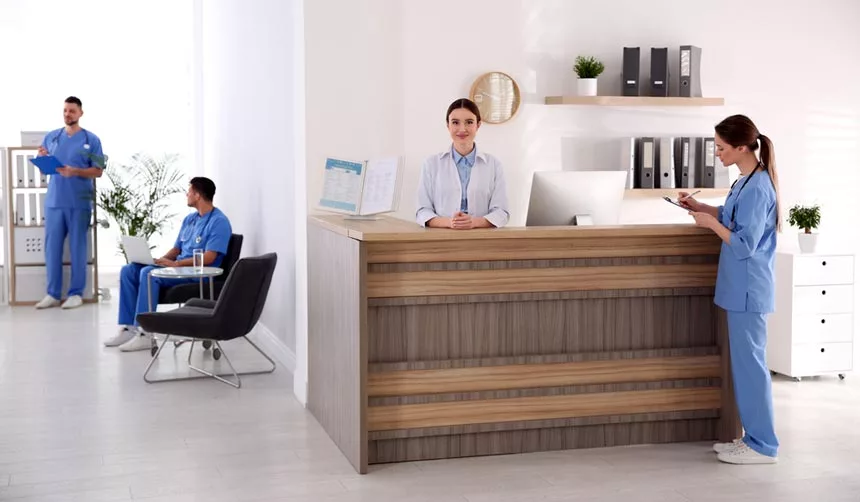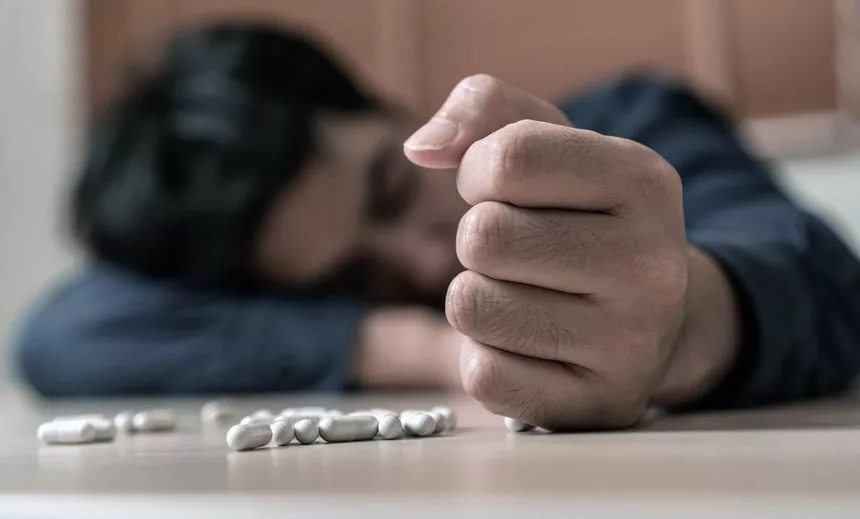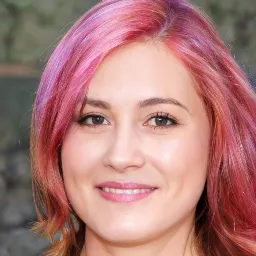Finding Suboxone Doctors Near You
Table of Contents
The use of Suboxone to treat opioid addiction is on the rise, and so is the need for Suboxone doctors. Suboxone’s main active ingredients are buprenorphine and naloxone, which are both medications commonly used for treating opioid dependence.
Suboxone doctors are specially trained and certified to prescribe and monitor Suboxone and other medications used to treat opioid addiction. Keep reading to learn more about this medication, and how you can find a Suboxone doctor near you today!
Why Do Doctors Prescribe Suboxone?

In light of the opioid epidemic currently plaguing the nation, Suboxone prescriptions have increased significantly in an attempt to battle opioid overdose and drug addiction. This medication combines buprenorphine and naloxone, using the properties of both of these drugs to combat opioid abuse.
Buprenorphine is an opioid partial agonist, meaning it binds to opioid receptors in the brain and produces some of the same effects as other opioids, but not as strongly. Naloxone is an opioid antagonist, meaning it blocks the effects of opioids in the brain.
When a doctor prescribes buprenorphine and naloxone, it is with the intention of treating a substance use disorder. As a controlled substance, these doctors have to undergo special training to ensure that they are able to properly recognize when this medication is necessary.
According to the Substance Abuse and Mental Health Services Administration (SAMHSA) the availability of medication-assisted treatment and Suboxone in particular has become one of the most effective means of fighting the opioid epidemic.
Using Suboxone to Treat Opioid Addiction
Suboxone works by reducing cravings and withdrawal symptoms associated with opioid addiction. It also helps to block the effects of other opioids, making it difficult to misuse other drugs while using Suboxone.
Those recovering from substance use disorders involving opioids, whether they are addicted to prescription medications or illicit drugs like heroin, can significantly benefit from medication-assisted treatment involving Suboxone.
Individuals may receive Suboxone while being treated in a medical detox program, inpatient/residential rehab center, or outpatient facility. No matter where this medication is received, however, Suboxone should be taken alongside other treatment services.
Suboxone can be an effective treatment for opioid use disorder, but it is not a cure. It is important for those taking Suboxone to use this medication as prescribed and alongside other recovery services as part of a comprehensive treatment plan. With the right support and services, achieving long-lasting recovery from opioid addiction is possible.
Opioid Withdrawal Symptoms
While opioids can be effective painkillers, prolonged or abusive use of these drugs can be habit-forming. When attempting to stop using opioids after forming a dependence on these drugs, the withdrawal period can be a difficult and uncomfortable process and answer the question: is Suboxone addictive?
When the body is deprived of opioids after a long period of abuse, this can cause a number of unpleasant psychological and physical symptoms. These effects can begin as soon as a few hours after a person’s last dose and may last anywhere from days to weeks.
The physical symptoms of opioid withdrawal can range from mild to severe, depending on the severity of the person’s addiction and how long their substance abuse has taken place. Common physical opioid withdrawal symptoms include:
- Sweating
- Chills
- Nausea
- Vomiting
- Diarrhea
- Muscle aches
- Cramps
- Insomnia
In some cases, more serious problems such as seizures, agitation, and difficulty breathing can occur. Psychological symptoms of opioid withdrawal may include anxiety, depression, irritability, and mood swings. This period may also be accompanied by cravings for opioids, which can increase the individual’s risk for relapse.
In order to safely and effectively manage opioid withdrawal, it is important to seek medical help from a doctor or qualified addiction specialist. Medications such as Suboxone and methadone, as well as other addiction treatment services can help reduce withdrawal symptoms and cravings, preventing relapse.
What to Expect From Suboxone Clinics

If you are considering Suboxone as a treatment for opioid addiction, it is important to understand what to expect when attending a Suboxone clinic. These are specialized facilities that provide MAT and counseling services to help those in recovery from opioid dependence.
During your first visit, you will meet with a Suboxone provider to discuss your medical and mental health history, current opioid use, and other relevant information. The provider will also review your current medications and determine if Suboxone is an appropriate treatment for you.
Once you have been approved for Suboxone treatment, you will be prescribed a specific dose of this medication. During your follow-up visits, your doctor will monitor your progress and adjust this prescription as needed.
When going to a Suboxone clinic, your healthcare providers will work with you to create an individualized treatment plan. This plan may not only include medication-assisted treatment (MAT) but therapy and other services as well, such as peer recovery support groups.
These services are important for helping recovering individuals to stay on track with their treatment and preventing relapse. Your Suboxone doctor will also work with you to monitor your progress and adjust your treatment plan as needed.
Suboxone clinics are dedicated to helping individuals in recovery maintain sobriety and achieve long-term success. It is important to remember that Suboxone is only one part of the recovery process. With the right support and treatment, you can overcome opioid addiction and lead a healthier, more productive life.
Recognizing the Signs of Opioid Dependence
Opioid addiction is a major health crisis in the United States and affects millions of people every year. The signs of Suboxone addiction can be subtle and hard to detect, but they are important to recognize in order to get the help you need.
One of the most common signs of opioid addiction is a change in behavior. People who are addicted to opioids may become more isolated and withdrawn, and may even stop participating in activities they once enjoyed.
They may also start to neglect their work or school responsibilities, and have more difficulty staying focused. In addition to these social breakdowns, financial problems are also common amongst those with substance addiction, as they may spend significant amounts of money funding this abuse.
Increased Tolerance and Other Opiate Red Flags

Another sign of addiction is an increase in tolerance. Someone who is addicted to opioids will need to use these drugs in larger doses and more frequently in order to achieve the desired effect or to avoid withdrawal symptoms. However, this can also increase their risk of overdose.
Changes in a person’s physical appearance, including weight loss, poor personal hygiene, and a generally unkempt appearance, can also indicate a drug use problem. These are just a few signs that can be looked out for when attempting to determine whether you or someone else may be struggling with an opioid use disorder.
While accepting that you may have a problem can be difficult, this will be the first and most important step in getting the help you need to live a healthier, substance-free life.
Find Suboxone Doctors Near You Today!
If you or a loved one is struggling with opioid addiction and are looking for medication-assisted treatment services, the Find Addiction Rehabs team is here to help. Our hotline is available 24/7 to help you find the best Suboxone doctors and treatment programs nationwide.
Give yourself a chance at addiction recovery, and call now to get started on your path to sobriety and becoming a happier, healthier you, today!
FAQs On Suboxone Doctors Near Me
How Do You Get Prescribed Suboxone?
The first step to getting a Suboxone prescription is to speak with your healthcare provider. You may need to seek out a specific Suboxone doctor, as your family doctor may not have the necessary requirements to prescribe this medication.
You and your doctor will go over your medical history together and decide whether or not this medication may be right for you. This will include seeing whether you have any other physical or mental health conditions that may negatively interact with Suboxone.
Suboxone can be an effective and safe treatment for opioid addiction. With the help of your doctor, you can get the prescription and treatment you need to start your recovery journey. Speak with a Find Addiction Rehabs representative today to find a Suboxone doctor near you!
Is Suboxone Addictive?
No, Suboxone is not considered to be an addictive substance. However, this does not mean the medication does not have a potential for misuse or abuse. When taken as prescribed, Suboxone is not habit-forming, as it does not produce the same high as other opioids.
Buprenorphine, one of the main active ingredients in Suboxone, binds to the same opioid receptors in the brain as other opioids. It does not, however, produce the same euphoric “high” as its more habit-forming counterparts. This is why the medication is generally not considered to be addictive.
Can I Get a Suboxone Prescription Online?
In short, no, you cannot get a Suboxone prescription online. While having an online appointment with their doctor may be more convenient for many people, Suboxone is a controlled substance, and it is illegal to get a prescription for this medication without consulting a doctor in person.
With that being said, there are many resources available to help you find Suboxone doctors online that are in your area. They may be able to schedule an initial virtual visit to see if you may be a good candidate for Suboxone before issuing a prescription in-person.
You can speak with a Find Addiction Rehabs representative or use our treatment locator today to find a Suboxone doctor and other rehabilitation services near you.
What Other Medications are Used to Treat Opioid Addiction?
There are several FDA-approved medications used to help treat opioid addiction in addition to Suboxone. Methadone is one of the most commonly used drugs used to help manage withdrawal and prevent relapse in those recovering from an opioid dependence.
While outpatient methadone treatment is available, using this medicine in a controlled environment and while under regular medical supervision is generally preferred.
In addition to this, Naltrexone treatment is also available to recovering individuals. This medication works by blocking the effects of opioids, preventing the “high” feeling, and minimizing the user’s desire to abuse these drugs.
While these medications can all be effective in treating opioid addiction, they may not work the same for everyone. It is important to remember that medications are just one part of the treatment process, and that participating in other recovery services will be essential to achieving long-lasting sobriety.
Anna M. joined Find Addiction Rehabs with extensive experience in the field of addiction treatment. As a former Nurse Practitioner in Miami, she found her passion for addiction treatment when a family member was lost to his disease. With each article and resource, she hopes to save other families from experiencing the anguish of a loved one’s passing due to drinking or drugs.


